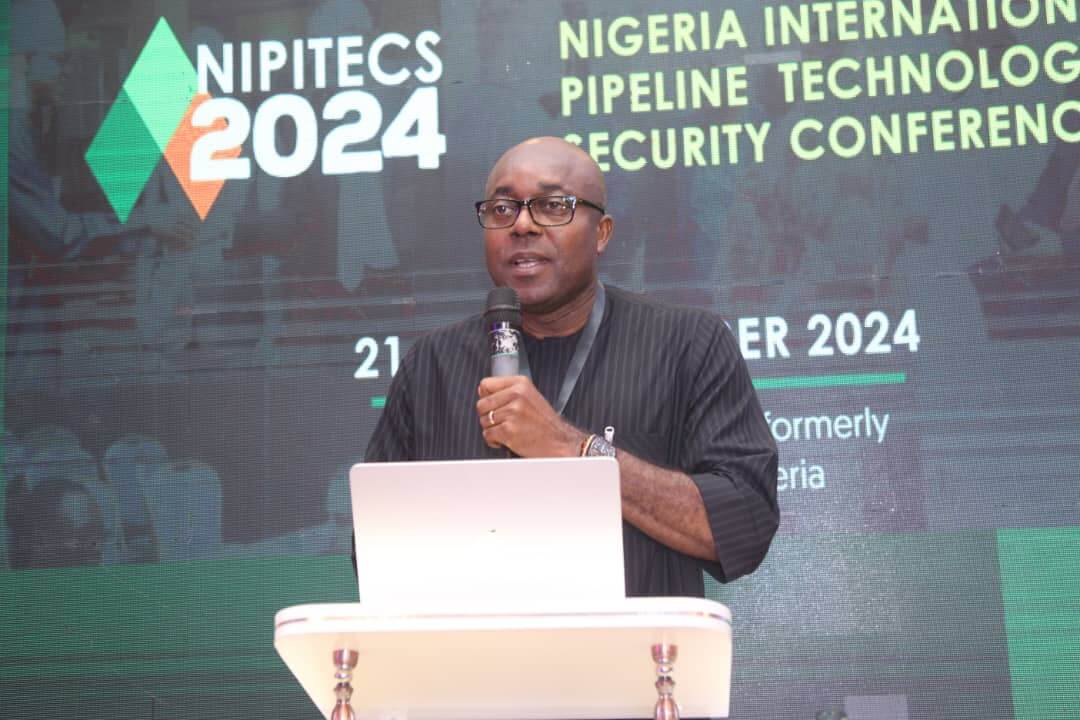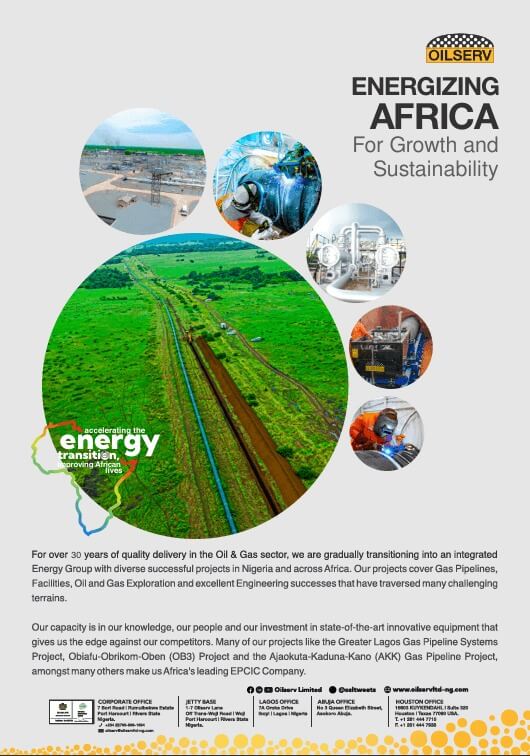Engr. Eloho Amagada PLAN Board of Trustees & Managing Director Amelin Nigeria Ltd Shares His Keynote Presentation at the just concluded Nigeria International Pipelines Technology Conference and Exhibition 2024.
Pipelines: Preamble
Pipelines play a crucial role in Nigeria's energy sector, transporting crude oil, natural gas, and refined products across the country. They are integral to meeting domestic energy needs and supporting export activities, which contributes significantly to national revenue. Key regions with major pipeline infrastructure include the Niger Delta, Lagos, and the North-Central areas.
Nigeria has over 5,000 kilometers of pipeline networks, making it one of the largest in Africa. 90% 60% The oil and gas sector contributes about 90% of Nigeria's foreign exchange earnings. The oil and gas sector contributes nearly 60% of total government revenue.
The pipeline infrastructure is central to enabling this economic contribution, ensuring the flow of resources from extraction points to refineries and export terminals. Despite their importance, Nigerian pipelines are fraught with numerous challenges, including aging infrastructure, vandalism, poor maintenance, and socio-political unrest.
For instance, pipeline vandalism led to an estimated loss of over 200,000 barrels of oil per day in 2022, translating to significant economic losses and environmental harm
Key Pipeline Challenges in Nigeria Aging Infrastructure
Many pipelines in Nigeria are over 40 years old, leading to increased vulnerability to leaks and bursts. Aging infrastructure is a major cause of oil spills, accounting for about 50% of all spill incidents in the country. Vandalism and Sabotage Pipeline vandalism is a significant issue, between 2017 to 2021 over 7,143 incidents reported. This has led to losses of approximately $2.5 billion annually, impacting both economic output and environmental quality.
Poor Maintenance Practices Lack of regular maintenance, primarily due to inadequate funding and bureaucratic hurdles, has resulted in pipeline degradation. Reports indicate that only 30% of pipelines receive scheduled maintenance, contributing to frequent failures. Political and Social Factors Local disputes and socio-political unrest, particularly in the Niger Delta, hinder effective pipeline management. Militant activities and community conflicts often lead to intentional damage, further complicating repair and maintenance efforts
Environmental Implications of Pipeline Failures Oil Spills Air and Soil Pollution
Pipeline leaks have led to over 4,000 recorded oil spill incidents in the last decade, significantly affecting local ecosystems, contaminating farmlands, and polluting water resources. Spills release harmful gases like methane and volatile organic compounds (VOCs), while oil contamination reduces soil fertility and impacts agricultural productivity. Studies indicate that affected farmlands can experience a 60% reduction in crop yield. Pollution has led to the decline of several species in sensitive areas like the Niger Delta, which hosts diverse wildlife. Reports suggest a 40% reduction in fish population in heavily impacted regions
Case Study: The Niger Delta Crisis
The Niger Delta has experienced over 1,000 pipeline failures in the last decade, resulting in extensive environmental degradation. Frequent spills have contaminated rivers, farmlands, and residential areas, severely affecting local ecosystems. Effects of Repeated Pipeline Failures Socio-Economic Impact The socio-economic impact on local communities is profound, with over 70% of residents experiencing health issues related to oil pollution, including respiratory problems and skin conditions. Livelihoods have been severely impacted, with fishing yields dropping by approximately 50% and agricultural productivity declining by 60% in affected areas
Challenges in Addressing Pipeline Issues Regulatory frameworks in Nigeria are often weak, with poor enforcement of safety standards and inadequate penalties for non-compliance. Reports indicate that only 20% of identified pipeline violations lead to penalties, contributing to a culture of impunity. The adoption of modern monitoring technologies like drones and IoT is limited, with less than 15% of pipelines covered by advanced monitoring systems. This lack of technology makes early detection of leaks and vandalism difficult. Regulatory Challenges Technological Gaps Community Relations Strained relations with local communities often lead to conflicts and vandalism. About 60% of pipeline vandalism incidents are attributed to community grievances, including lack of economic benefits and environmental damage.


















